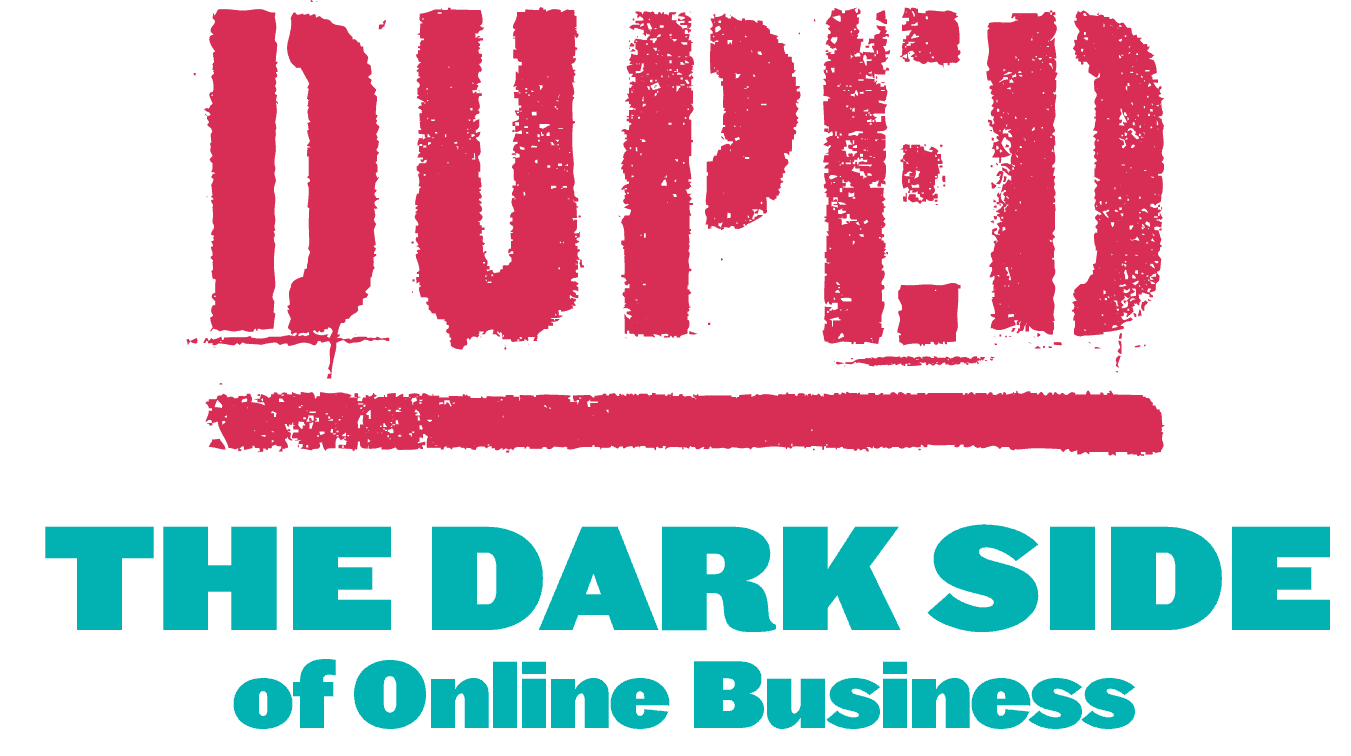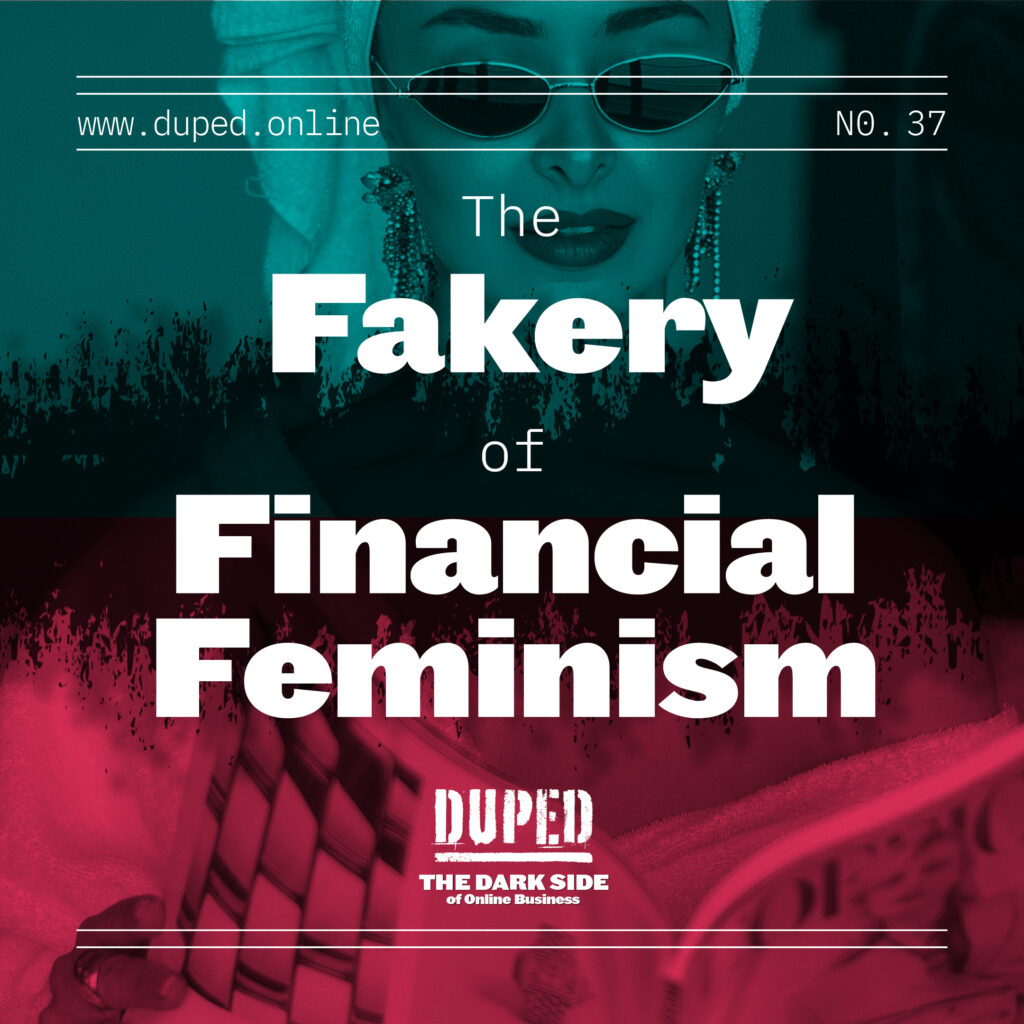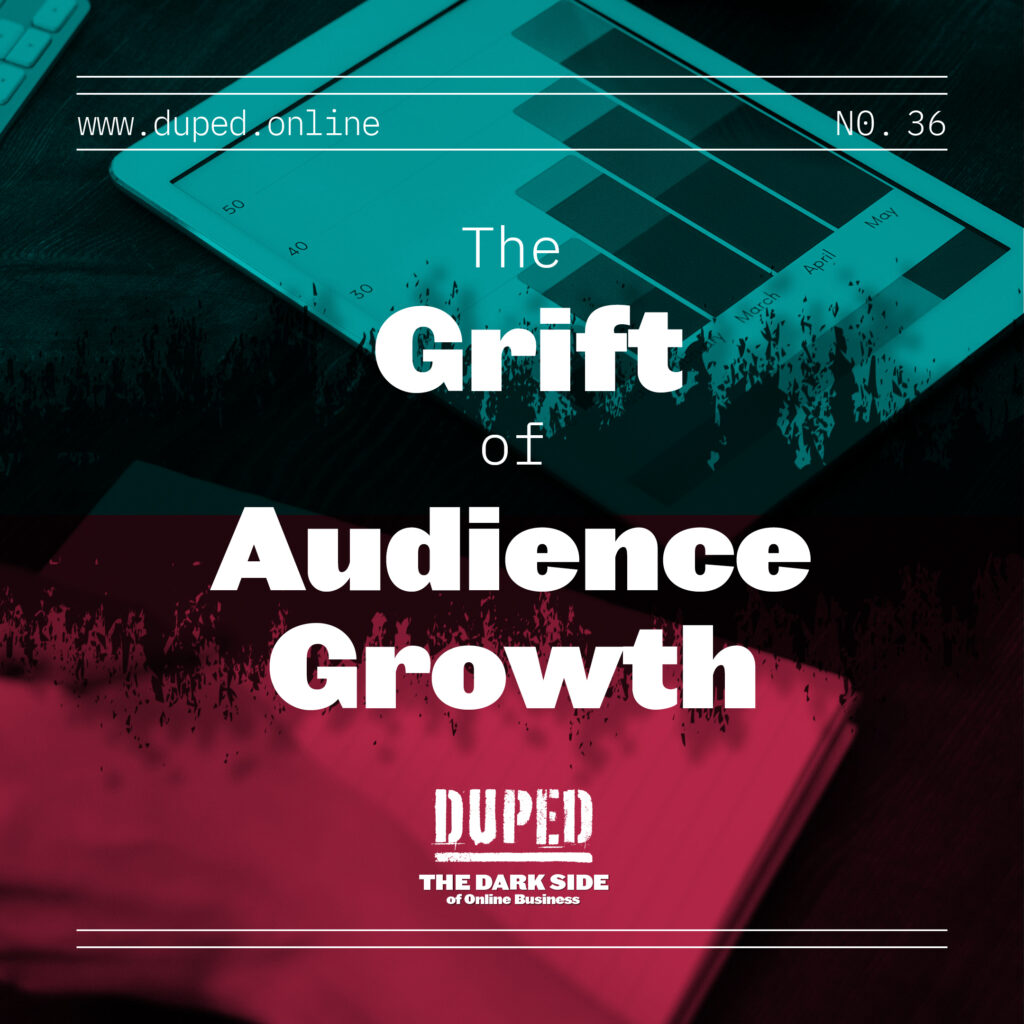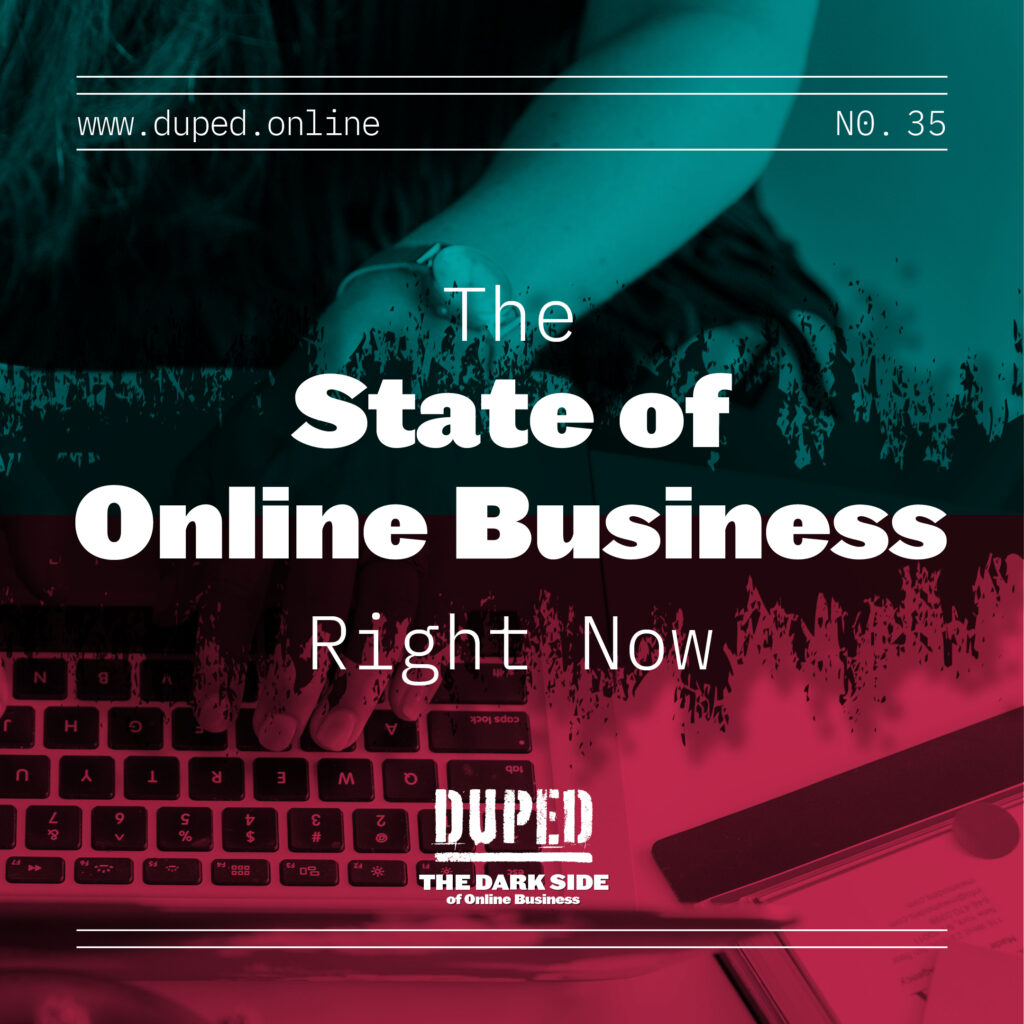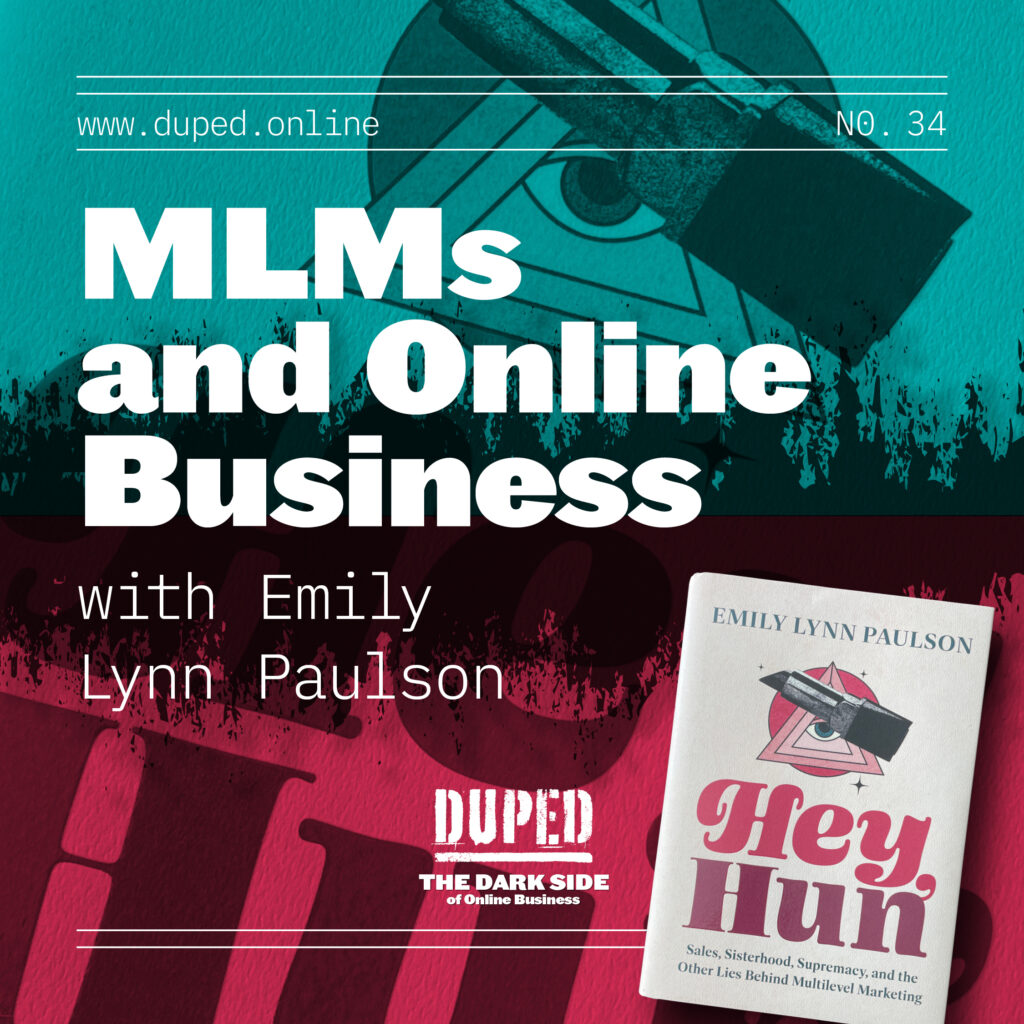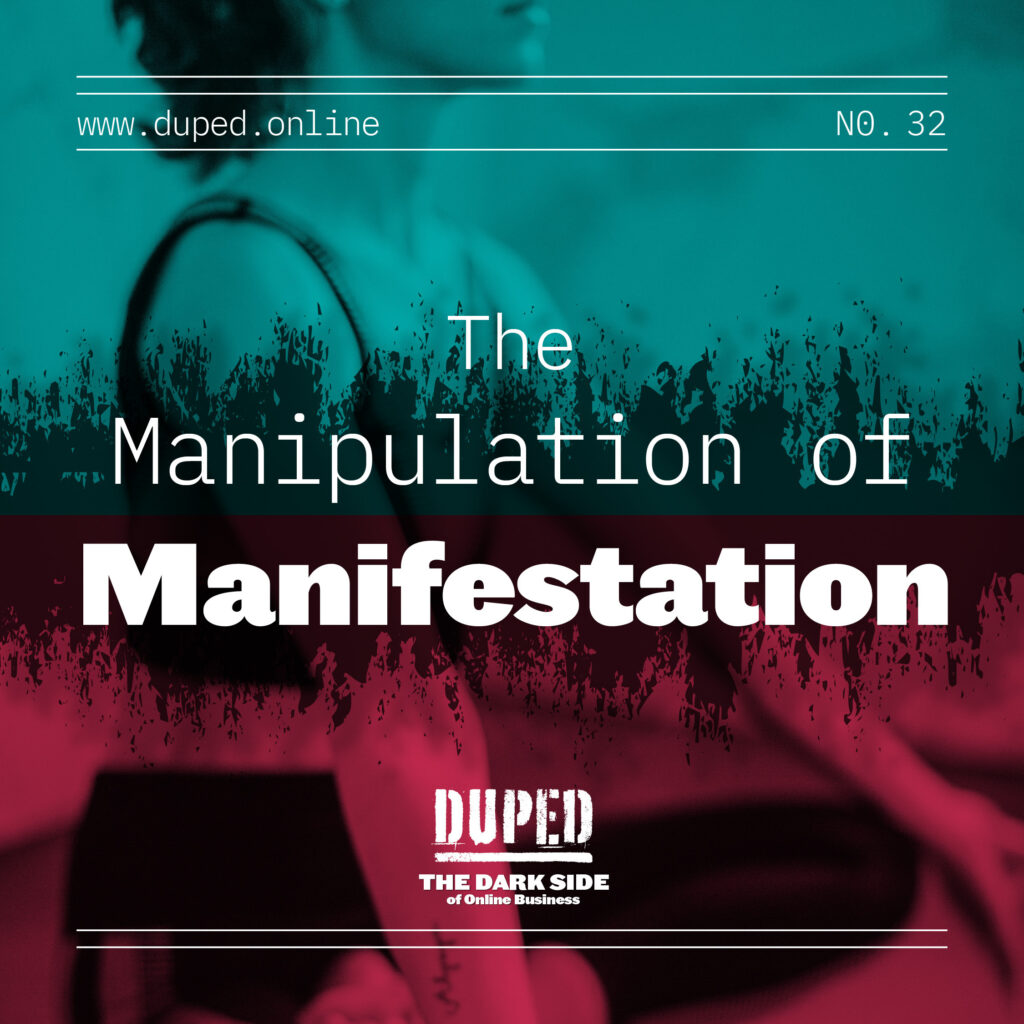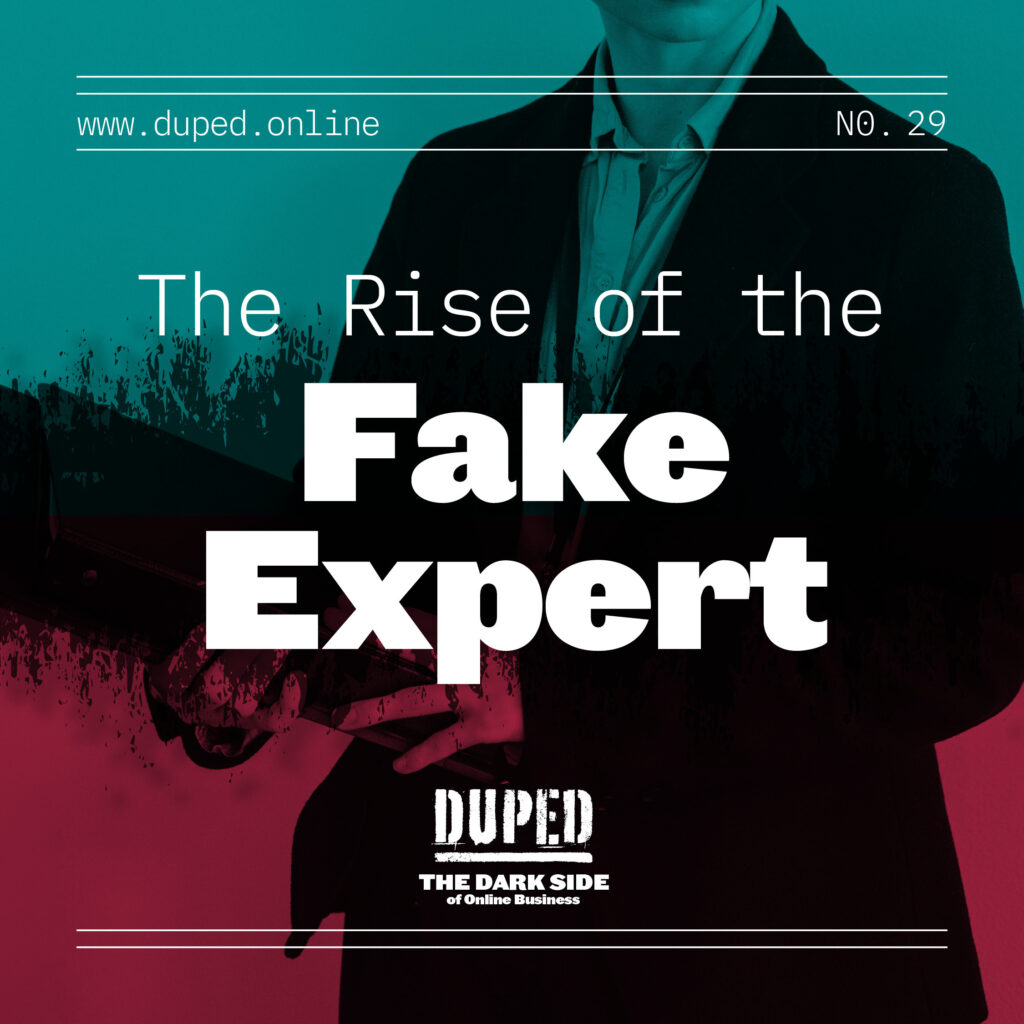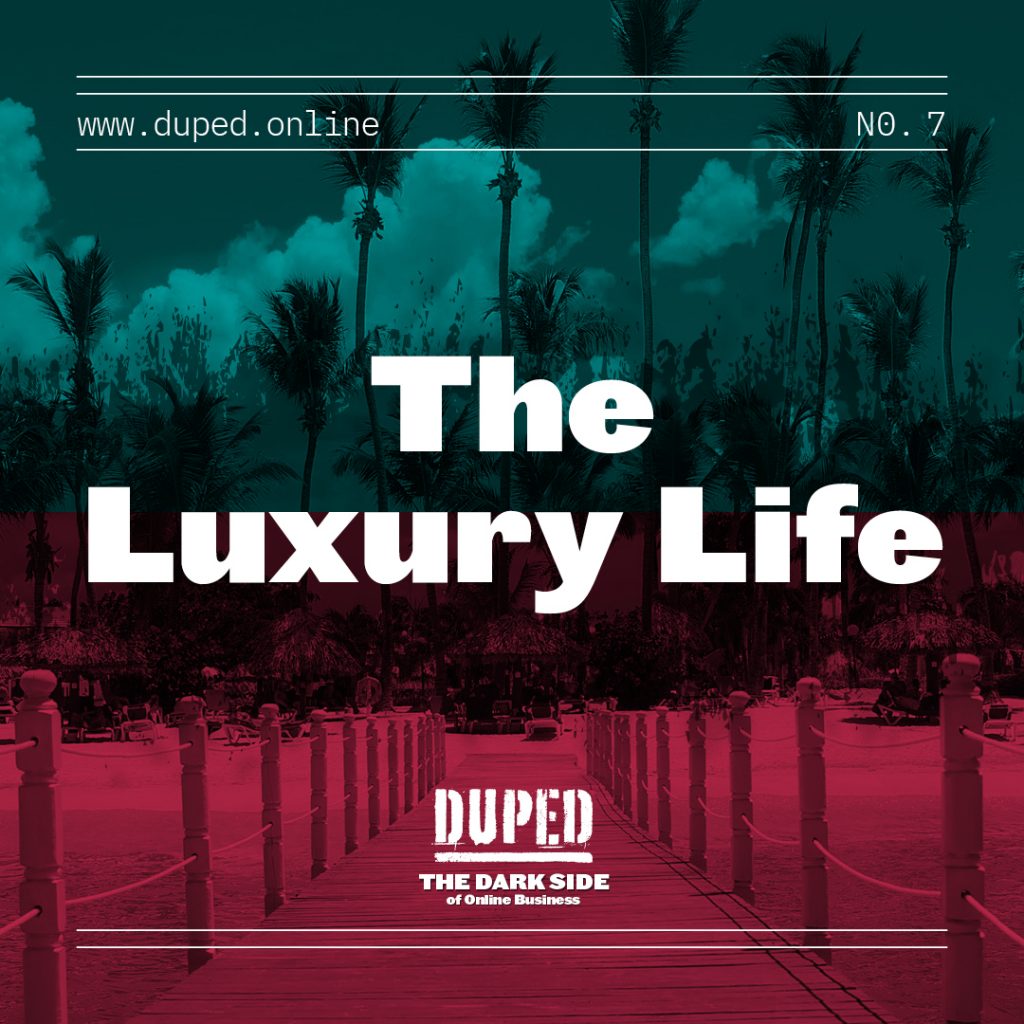
The Luxury Life

Oh, that jet-set life. From five-star hotels to fancy cars and houses, a big part of the dream we’re being sold by celebrity entrepreneurs building a business so we can buy the finer things in life. In this episode of Duped, we’re looking at the luxury lifestyle that’s inescapable if you work in the online business world.
When you start a business, naturally, you want to make money. After all, you need to earn a living. But if you hang around the online business world for a hot second, you’re being bombarded with the message that your goals are too small. You need to play bigger, which is often code for you “you need to make more money”.
And part of the marketing and sales job that backs up the make more money message is about casting a vision for what our lives could be like if we “scaled” our business.
Welcome to the Luxury Life. The trappings of which are used to sell us the online business dream, and sell it HARD.
The trappings of the luxury life are really pretty cliche, and they ascribe to the same broader capitalist ideas of what success looks like. But don’t dismiss anyone who’s not talking about this overtly as not using the luxury life to sell you the dream.
I’d argue that anyone talking about their 7-figure lifestyle or the trappings of what their business affords them is doing this.
Authority & Trappings: What You Need to Know
We’ve talked a lot about Robert Cialdini on the show so far, and I don’t expect we’re going to stop anytime soon.
One of the six weapons of influence is authority, and this is described as a “natural tendency to obey without question when authority factors are present.”
Before we go any further, I think we need to denote there’s a difference between being in authority, and being an authority. This is exactly like what we covered in episode three on influencers and experts.
On the Influence at Work website they make the distinction as follows “someone who is in authority has a title, ranking or the trappings of authority”, “while someone who is an authority is more persuasive because they have superior knowledge, experience, or expertise in a specific area.”
In the current state of online business, It’s not enough to try to convince us that we should buy from someone based on their expertise as many times, that expertise is questionable at best. It’s a house of cards, so they do the work of being in authority.
Cialdini refers to how you can persuade people using “connotation not content” such as titles, clothes and trappings. The Milgram experiment is a great example of using clothes, and we see this often with how people dress for their branded photo shoots. I mean, there’s a reason we see a lot of designer clothes on the high ticket coaches.
Trappings are essentially status symbols designed to shortcut your logic and gain your attention, and ultimately your trust.
Selling the Dream with an Invented Image
On some level, we all know that we’re being sold the dream of how building our business will help us achieve our goals, but I don’t think people realize just how deep the deception really is.
We’re being duped every single day through the use of the trappings of luxury life. Again, it can be subtle, but every post, every email, every ad is designed to reinforce the invented image.
If you’re not convinced, I dug up a few examples of how we’re being duped. First, I found an article from Canadian news magazine on how “appearing wealthy on social media has become its own industry”.
The article talked about the wealthy flex for social media, but it’s seriously applicable to the online business world. Remember, I’ve been behind-the-scenes, I know firsthand what this looks like.
It’s the ultimate in fake it until you make it culture. From rented penthouses to using a toilet seat as a plane window….the flex is fake.
According to Lucie Greene, a consumer behavior analyst at J Walter Thompson Intelligence, “We’re seeing a rising awareness of how social media use and influencer culture affects mental health, from FOMO (Fear of Missing Out), to driving compulsive, addictive consumption, to feelings of isolation. Brands are also pushing back against the murky unregulated world of influencers – big brands and groups like Unilever are starting to be openly vocal about their mistrust of influencers.”
What’s interesting to me about this is it tracks with what I see in online business. Because of the pandemic, it’s not always jet-set trips in private first-class pods, and more “relatable rich” content.
It’s important that we watch for these shifts as the celebrity entrepreneurs using these tactics are masterful marketers and they’ll shift accordingly.
The Problem with the Luxury Lifestyle
If you want the luxury lifestyle, whatever that means to you, we’re not here to stop you, but we want you to fully understand that what you’re being sold isn’t real.
It’s an image designed to extract money from you so they can further their lifestyle. Yes, that sounds cynical, but the reality is that very few people are making six, let alone seven figures in the online business market.
But here’s the thing, the luxury lifestyle works.
If we buy into the idea that we want luxury, we then need to make money. So we then are trapped into thinking we should learn from them. It’s the ultimate version of the “I did it and you can do” message that underpins this entire industry.
The other part of this we need to consider is that the luxury life and the way it’s marketed to us as what we should strive for, means we assign it people selling it more value. We’re willing to pay more as their offerings have higher perceived value.
As humans, we make an assumption that if something costs more, and is “fancier” it has higher value.
Solutions: Don’t Get Duped by the Luxury Lifestyle
- Define and Stick to Your Own Goals and Values: When you’re crystal clear on what you really want from your business and life, and your values, it’s easier to lean back on that when you’re looking at the luxury lifestyle image.
- Question the Image: When you’re deciding whether or not to give people your time, attention and most of all your money, you need to look beyond the image. Anyone can fake it until they make it, but question the image, and question why they’re relying on it so much in their marketing.
- Stop Believing Paying More Means it’s Better: Just because there’s a high price tag or perceived status attached doesn’t mean it’s actually worth it. Consider why you want it, and how much of it is thanks to the trappings involved. You’re not buying the lifestyle, that’s not for sale.
- Create a Budget and Institute a Waiting Period: This type of marketing is very alluring, and at the wrong moment in time it can mess with us and convince us it’s the answer to whatever we’re feeling or experiencing. Create a budget, stick to it, and don’t allow for any impulse purchases. Nothing awesome was ever purchased two minutes before the deadline.
Links for this show:
- Milgram Obedience Experiment
- Maintenance Phase Podcast
- Robert Cialdini’s Influence at Work
- Appearing Wealthy on Social Media has Become its Own Industry
- Reality Check: Life Behind Insta-Glam Image of ‘Influencers’
- Does Pricing Matter? The Psychology of Luxury Pricing
- Rethinking Money Mindset Bear Hebert
- Are Online Businesses the New MLMs?
Join the

Patreon

for only $7/month and get a
monthly bonus episode,
behind-the-scenes content
and more.
